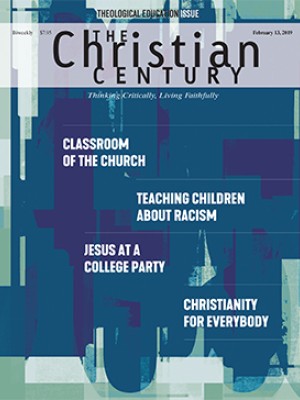Muslim civil rights group sues Maryland over ban related to Israel boycott
Twenty-six states currently have some form of a ban on supporting the the boycott, divestment, and sanctions movement.
The Council on American-Islamic Relations filed a lawsuit in January challenging Maryland governor Larry Hogan’s executive order banning state agencies from contracting with businesses that boycott Israel.
The “No Boycott of Israel” order aims to combat the boycott, divestment, and sanctions movement opposing Israel’s treatment of Palestinians, which Hogan has charged with “economic discrimination” against Israel. Twenty-six states currently have some form of a ban on supporting the BDS movement, including laws requiring contractors to take a personal oath not to participate in boycotts.
CAIR is also filing a First Amendment challenge to a similar law in Texas, where a Muslim woman of Palestinian descent recently lost her job of nine years after refusing to sign an anti-BDS pledge in order to work as a children’s speech pathologist in public schools.
Read our latest issue or browse back issues.
Civil rights advocates have long lobbied against measures banning BDS boycotts, saying they violate freedom of speech.
“It is unconstitutional and dangerous, especially because it prioritizes the interests of a foreign government who is in violation of international law over Marylanders’ First Amendment rights,” said Zainab Chaudry, CAIR’s director of Maryland outreach.
The lawsuit on behalf of plaintiff Syed Saqib Ali, which names Hogan and state attorney general Brian Frosh, is the sixth federal lawsuit of its kind. Ali served as a member of the Maryland House of Delegates from 2007 to 2011 and is a software engineer who applied for a state contract to build a software tool that would compare life insurance policies. Ali found that in order to apply he would first have to certify that he was not currently boycotting Israel or any Israel-occupied territories and that he would not do so during the term of his contract.
Ali refused; a cofounder of Freedom2Boycott in Maryland, he has long boycotted companies in Israel and its occupied territories. Ali noted that he has also boycotted companies based in the state of North Carolina because of laws criticized as anti-LGBT and that he is currently boycotting businesses and properties owned by President Trump and his family.
At a news conference in Baltimore, he pointed out that Hogan issued his directive after the Maryland legislature rejected the anti-BDS legislation.
“Palestinians . . . live under a brutal military occupation, and until that occupation is ended, I decided I will boycott Israel,” Ali said. “It is my First Amendment right, and it is guaranteed by the U.S. Constitution.”
The U.S. Supreme Court has specifically upheld the constitutional right to boycotting time and time again, noted Gadeir Abbas, CAIR senior litigation attorney.
“Boycott activity occupies a special place in the history of the First Amendment,” he said, “from the boycotts of British tea to the Montgomery bus boycotts to boycott activity directed at ending South African apartheid.”
In 1982, the Supreme Court ruled that boycotts are a form of constitutionally protected speech in spite of any economic damage they may cause, and in 1996 it ruled that the government cannot terminate a contract to punish a contractor’s free speech.
Hogan dismissed free speech concerns when he signed the order, saying BDS boycotts “are asking people to discriminate against Israel. It’s clear. There’s no argument to the contrary that makes any sense.”
The executive order states that businesses involved in anti-Israel boycotts “pose undue risks” and contracting with them “makes the State a passive participant in private-sector commercial discrimination.” —Religion News Service
A version of this article appears in the print edition under the title “Muslim civil rights group sues Maryland over ban related to Israel boycott.”





